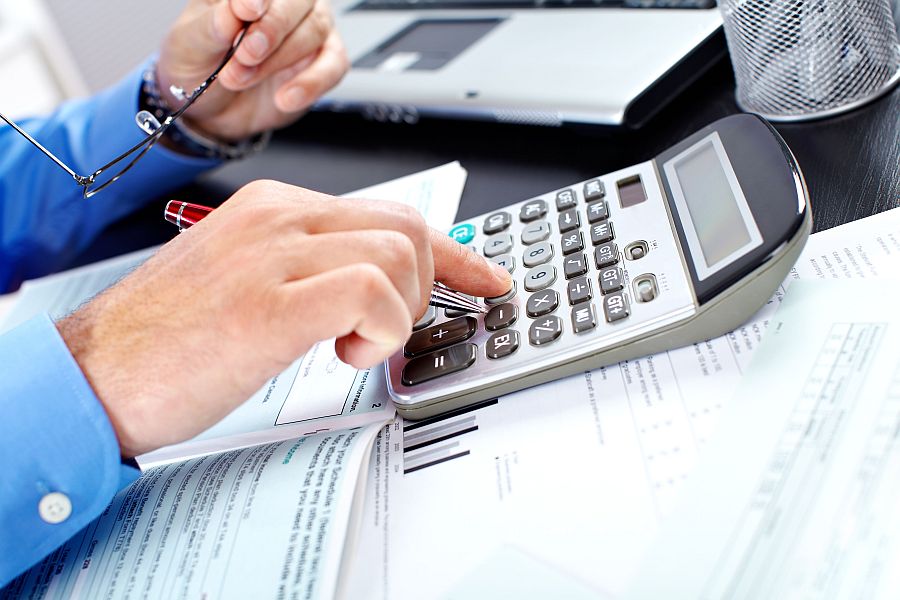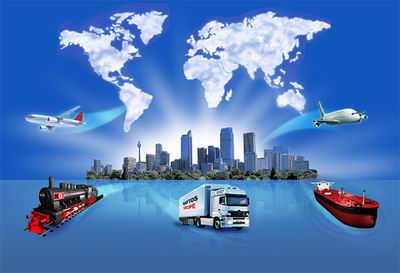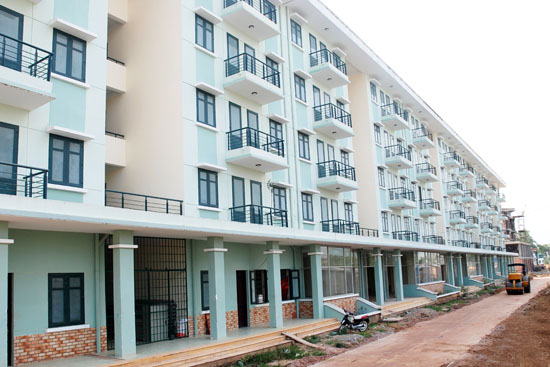On November 26, 2014, the National Assembly of Vietnam passed Law No. 70/2014/QH13 amending and supplementing certain provisions of the Special Consumption Tax Law with several important new points regarding the scope of application, tax calculation basis, and tax rates. There are many tasks required to bring this Law into practical life, among which is the issuance of subordinate legal documents to provide detailed regulations and guidance for implementing the Law. This should ensure both appropriateness to Vietnam’s socio-economic practices and efficiency in implementation time to proactively organize its enforcement.

Key New Points
The amendments and supplements to the Law on Special Consumption Tax in Vietnam are considered to ensure a reasonable revenue for the state budget based on harmonizing the interests between the State of Vietnam and producers, businesses, and consumers. To be specific:
Firstly, remove naphtha, reformate components, and other formulations for gasoline blending from the special consumption tax subjects. This amendment will address practical issues that negatively affect business operations in certain sectors, such as naphtha and reformate components used not only for gasoline production but also as solvents in the manufacture of other products not subject to special consumption tax like paints, synthetic fibers, detergents...
Secondly, add aircraft and yachts used for security and defense purposes to the list of items not subject to special consumption tax. The objective of regulating special consumption tax on aircraft and yachts is to target private aircraft and yachts used for personal consumption. Therefore, the Law on Special Consumption Tax 2008 stipulated that aircraft and yachts used for transporting goods and passengers were not subject to special consumption tax. Adding aircraft and yachts used for security and defense purposes to the tax exemption category ensures the correct regulatory objective of the special consumption tax. Moreover, security and defense are areas where the State guarantees 100% of the budget, so technically, including aircraft and yachts used for security and defense in the tax exemption category simplifies budget collection and expenditure procedures.
Thirdly, formalize the regulation on the taxable price for special consumption tax in cases where goods are subject to both special consumption tax and environmental protection tax: The taxable price is the selling price excluding special consumption tax and environmental protection tax. This provision was previously only guided in sub-law documents due to the unavailability of amendments.
Fourthly, adjust the tax rates for certain goods and services. Increase the special consumption tax rates on tobacco, alcohol, beer, casino business, and reward-based electronic games. Additionally, add two lower tax rates for biofuels. Generally, the changes in tax rates aim to increase taxes on goods with significant negative externalities on societal life, especially tobacco, alcohol, and beer. To contribute to the National Strategy on Tobacco Harm Prevention by 2020 (reduce smoking rate among men from 47.4% to 39%), the increase in tobacco tax is very necessary and reasonable. The increase in alcohol and beer taxes aims to help reduce alcohol abuse, the consequences of which have reached alarming levels regarding social order and human health. The lower tax rates on biofuels aim to reduce the selling price of biofuels, thereby promoting the use of environmentally friendly fuels. The increase in casino tax aligns with amendments to personal income tax regulations. The National Assembly has passed the Law on Amendments and Supplements to several articles of the tax laws, including the elimination of personal income tax on casino winnings, as it is practically impossible to determine the winners' income. Specific changes in tax rates are shown in the table above.
In summary, the amendments and supplements to the special consumption tax aim to better guide production and consumption, ensure high taxes on luxury goods or those with significant negative externalities for society, promote green and sustainable growth, improve the quality of life for the people, and adjust in a phased manner to ensure businesses' adaptability.
Issues to Note When Drafting Sub-Law Documents
Basically, the new amendments and supplements to the special consumption tax under Law No. 70/2014/QH13 are quite clear. However, the formulation and completion of decrees and circulars providing detailed regulations and guidelines are still an objective necessity within the legislative process in Vietnam to ensure consistent and smooth implementation. Furthermore, the organization and implementation of the Law on Special Consumption Tax 2008 and its guiding documents (Decree 26/2009/ND-CP, Decree 113/2011/ND-CP, and Circular 05/2012/TT-BTC) have revealed difficulties and obstacles that these sub-law documents fail to address or that have become outdated, ranging from the scope of application to taxable price determination and tax deduction regulations. The Ministry of Finance has submitted to the Government of Vietnam a draft consolidated Decree detailing the implementation of the Law on Special Consumption Tax and the Law on Amendments and Supplements to several articles of the Law on Special Consumption Tax. It is also actively preparing a circular to guide these documents. We believe that, in finalizing the detailed regulations and guidelines for implementing the special consumption tax, it is essential to comprehensively address the practical issues to ensure feasibility based on the actual economic and social conditions of Vietnam. Specifically, as follows:
Taxable and Non-taxable Subjects
Among the non-taxable subjects stipulated in Decree 26/2009/ND-CP are decorative joss paper and joss paper used as teaching aids. However, in practice, it is very challenging to distinguish decorative joss paper from worship joss paper. Hence, decorative joss paper should be removed from the non-taxable subjects. Simultaneously, there needs to be clear guidance on what constitutes joss paper used as teaching aids to avoid disputes during application. Options for handling this issue include: (1) The Ministry of Finance consults the Ministry of Education and Training to clearly define joss paper used as teaching aids in the Decree detailing special consumption tax; or (2) The Decree references legal documents defining joss paper as teaching aids.
The Law on Special Consumption Tax stipulates “Goods imported from abroad into non-tariff zones, goods sold domestically into non-tariff zones and used solely within the non-tariff zones, goods traded between non-tariff zones, except for passenger cars with less than 24 seats” are not subject to special consumption tax. From practical management, the Ministry of Finance realized: “Recently, there have been several cases of taking advantage of the special consumption tax exemption for certain high-tax items such as tobacco, cigars, alcohol, and beer by bringing them into zones applying the non-tariff policy with inhabitants, then smuggling them into the domestic market to evade taxes and commit commercial fraud.” Therefore, the Ministry of Finance proposes supplementing the definition of non-tariff zones to apply this clause into the Decree detailing special consumption tax implementation.
Non-tariff zones are defined as: “Non-tariff zones are geographically delimited areas, separated from the external territory by physical barriers, gates, and entrances ensuring conditions for customs supervision and control by relevant authorities. Customs authorities supervise and inspect goods and vehicles entering and leaving the zones.” We fully agree with the Ministry of Finance on the necessity to amend legal provisions related to non-tariff zone tax policies.
However, including this definition in the Decree detailing special consumption tax implementation is inappropriate for two reasons: (1) The current Law on Export and Import Taxes already defines non-tariff zones, falling within the scope of export and import tax regulations; (2) This definition is inconsistent with the definition of non-tariff zones in the Law on Export and Import Taxes and does not correctly reflect the essence of non-tariff zones. To resolve this issue, the definition of non-tariff zones in the Law on Export and Import Taxes should be amended, or the Law on Special Consumption Tax should be further studied for amendments to limit the groups of non-tariff zones to which this clause applies.
Taxable Price
For a single-stage consumption tax with a high tax rate like the special consumption tax, a strict and feasible taxable price regulation is the most crucial factor to prevent tax evasion or avoidance. Therefore, researching and finalizing regulations on the taxable price for special consumption tax in detailed regulations and implementation guidelines is very necessary. From practical management over the years, four important issues regarding the taxable price for special consumption tax need amendments and supplements. Specifically, as follows:
First, concerning taxable prices for passenger cars with less than 24 seats and air conditioners with a capacity of 90,000 BTU or less for importation. Current regulations stipulate that the taxable price for imported goods (including passenger cars with less than 24 seats) is the import taxable price plus import tax. For two fundamental reasons: reasonable protection of domestic production under the commitments to the WTO import tax reduction roadmap and ensuring fairness in determining taxable prices between imported and domestically produced goods, the Ministry of Finance proposes the following amendment: Adding a provision that the taxable price for special consumption tax on imported passenger cars with less than 24 seats and imported air conditioners with a capacity of 90,000 BTU or less includes domestic sales costs of the importer by additionally collecting special consumption tax at the domestic stage when the importer sells the car or air conditioner.
There have been many differing opinions on this proposal from the Ministry of Finance. We will analyze the theoretical framework, international experiences, and Vietnam's reality to discuss this issue.
Special consumption tax is a consumption tax, so in principle, the tax base should be calculated based on the price the final consumer pays. However, due to tax management conditions, countries choose to apply one of two models for determining special consumption tax base prices. Ben J.M. Terra (1996) mentions two models for determining special consumption tax base prices. The first model calculates the tax from the production stage, with the special consumption tax base price for the producer being the ex-factory price, and for the importer being the import price plus import tax. The second model calculates the special consumption tax base price at the retail stage, where the special consumption tax base price for both imported and domestically produced goods is the retail price excluding special consumption tax, VAT, and environmental protection tax. The second model has a variation where the special consumption tax base price is determined by wholesale price or retail price depending on the item. Ben J.M. Terra also notes that while the retail price-based model is fairer and aligns better with the principle of special consumption tax, developing or underdeveloped countries tend to adopt the first model due to its easier application and suitability for less advanced management levels.
Based on this theoretical and practical foundation, Vietnam has chosen to apply the first model like most developing countries, which was appropriate for the previous stage. However, given the current advancement in tax management and broader economic and social management by state authorities in Vietnam, coupled with improved business management laws, transitioning to a retail price-based determination for some items is reasonable and feasible. Specifically, for imported cars and air conditioners, the special consumption tax base price is the price set by the importing entity, its subordinate unit, or the authorized dealer selling them. For imported cars and air conditioners, special consumption tax would be temporarily calculated at the import stage based on the import taxable price plus import tax, while the official taxable price is the selling price by the importer's unit or dealer. Such provision is reasonable and feasible for three reasons:
Firstly, in principle, the closer the special consumption tax base price is to the final selling price to the consumer, the truer the tax's nature, ensuring fairness between domestically produced and imported goods since this is a consumption tax borne by the consumer.
Secondly, passenger cars and air conditioners are items with a specific supply chain with fewer intermediaries, and under current legal and managerial conditions in Vietnam, controlling the retail stage for these items for tax purposes is totally feasible.
Thirdly, such provision effectively prevents tax evasion through transfer pricing by importing enterprises, contributing to preventing budget revenue loss.
Second, regarding taxable prices for dependent accounting units and related parties.
Current detailed regulations and implementation guidelines only stipulate for cases where goods are sold through dependent accounting units and authorized dealers. However, in reality, due to the lack of provisions on taxable prices for independently accounting units and affiliated, linked companies, enterprises currently exploit this gap to avoid taxes, causing significant state budget revenue losses. Therefore, regulations on taxable prices for the special consumption tax need amendments and supplements to encompass all these cases to prevent tax avoidance.
Third, regarding taxable prices for sales through commercial businesses. Currently, this case is regulated as the price set by the manufacturer but not lower than 10% compared to the average price of commercial business units. However, in reality, the price difference or commission based on tax-liable items and commercial agency levels ranges from 2% to about 5%. Moreover, for items where manufacturers have multiple agency levels and associated units, determining the average selling price of commercial businesses is challenging. Therefore, we fully agree with the Ministry of Finance's proposal that this case should determine the taxable price as the actual price at which the manufacturer delivers to the commercial business but not lower than 5% compared to the highest selling price of the commercial business.
Fourth, regarding taxable prices for exported goods that do not fully meet the special consumption tax exemption conditions. The Law on Special Consumption Tax stipulates that exported goods are exempt from special consumption tax if certain conditions are met. If these conditions are not fulfilled, special consumption tax must be calculated as for domestic consumption. However, currently, there are no provisions on taxable prices for this case, causing inconsistent application across localities. Therefore, it is necessary to supplement regulations on taxable prices for this case.
Tax Deductions
Applying the taxable price regulations for passenger cars with less than 24 seats and air conditioners with a capacity of 90,000 BTU or less, as mentioned above, technically, this will result in special consumption tax collection at both import and domestic stages. That is, temporarily calculate special consumption tax at import and then officially at domestic consumption, with deductions for special consumption tax paid at import. To avoid scenarios of a negative special consumption tax when calculating tax domestically, deductions should be limited to the special consumption tax amount on domestically sold goods.
Other Related Issues
In addition to the above issues, to ensure new regulations on special consumption tax are effective, it is necessary to research amendments and supplements to some related legal documents as follows:
Firstly, amend regulations on special consumption tax declaration and payment in guidelines for the Law on Tax Administration. include specific guidelines for special consumption tax declarations and payments in special cases: Independently accounting subordinate units, affiliated units of enterprises importing passenger cars with less than 24 seats and air conditioners with a capacity of 90,000 BTU or less; clarify tax declaration and payment responsibilities for outsourcing parties, and outsourcing receivers...
Secondly, amend and supplement legal documents directly related to special consumption tax declaration and calculation obligations. research amendments to the definition of non-tariff zones in the Law on Export and Import Taxes. Study amendments to definitions of related parties, application scopes, and enterprises' declaration obligations concerning related transactions currently stipulated in Circular 66/2010/TT-BTC.
Source: luattaichinh.wordpress.com
- Key word:
- Law on Special Consumption Tax
- Vietnam
 Article table of contents
Article table of contents










.Medium.png)
.Medium.png)
.Medium.png)
.Medium.png)
